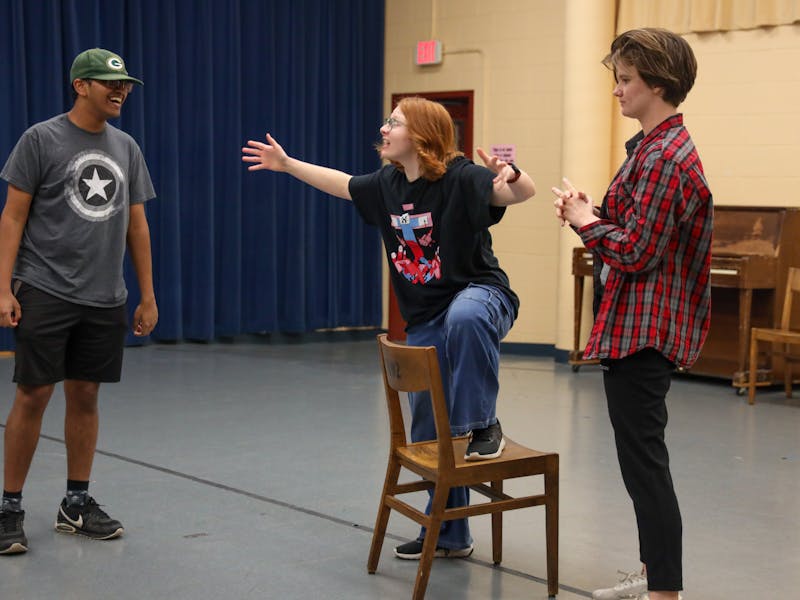As students are getting settled into the spring semester, it’s important for us to reflect on how privileged we are to have the opportunity to attend classes and be surrounded by our peers once again.
UofSC’s campus is home to a diverse student body, including students of all ages. Perhaps you have had a class with an individual who doesn’t fit the traditional age range of 18 to 24. Students of any age above the typical college student range are known as "non-traditional students." About 38% of students enrolled in undergrad are over the age of 25, according to Accredited Schools Online. While traditional students face so much pressure to complete their higher education quickly and efficiently, perhaps we can gain motivation by understanding those who return to school later in life.
Non-traditional students often live different lives than your average undergrad student. There are single parents who do everything they can to balance their studies, their jobs and their families on a daily basis. There are students who return to college in order to complete their education after only obtaining a high school diploma or GED. There are some individuals that may want to switch careers and aim for another college degree in a different field.
In Providence, Rhode Island, an 89-year-old non-traditional student received his Ph.D. in physics from Brown University last December. Manfred Steiner already had a medical degree and a doctorate in biochemistry. After retiring from his job at the Ivy League university nearly two decades prior, he pursued a childhood dream of his to become a physicist. “Originally I just wanted to take classes, doing something that helped my mind and was interesting to me,” Steiner said in a Brown University news release. He went back into undergrad with no intention of getting another doctorate but completed enough hours to be admitted to graduate school as a Ph.D. candidate.
Individuals who pursue education later in their adult lives have a different outlook on their classes. More often than not, non-traditional students gain significant life experience prior to returning to academics. They have experienced the "real world" of working and using time management that may have taught them to handle their classes more efficiently than the average college student. These same individuals may have a better understanding of the importance of a higher education which can motivate them to stay focused on their studies and often have a higher level of commitment than the average undergrad student. Older individuals often have clear goals and enroll at a university to gain knowledge, differing from typical students who participate in a number of extracurricular events on and off-campus.
Non-traditional students can provide a unique perspective in the classroom and to their younger peers. Tim Higgins is a non-traditional student at UofSC and has been enrolled at the university since 2015:
What is your age? And where are you from?
Tim: “I'm 74 years old, born and raised in the early years in Connecticut and have lived in Rhode Island, Ohio, Oklahoma, Virginia, Minnesota, Maryland, New Jersey and now, here.”
Why are you currently obtaining a college education?
Tim: “I take undergraduate and graduate courses in the Humanities just for the fun of learning and am not seeking a degree.”
Have you been to college/university before?
Tim: “I graduated from Providence College in 1969 with a B.A. in Sociology and briefly did graduate work at the University of Oklahoma in American Studies.”
What are you currently studying?
Tim: “Since enrolling in 2015, I've taken courses in African American Studies, Anthropology, English, Geography, History, Sociology and Southern Studies. 63 hours, to date. I have yet to take a seat in a Political Science or Psychology course, though I would like to. I am a huge advocate of interdisciplinary approaches to better understand the world and address matters needing attention. This semester I am in Dr. Gretchen Woertendyke's ENGL 384 class on Realism.”
What are your goals?
Tim: “My goal is to keep on truckin'.”
What kind of life experience have you had that contributes to your desire to continue your education?
Tim: “Well, my life experiences, mostly a career in the book business, have served to keep me curious to continue to learn and that has been motivation enough. Many universities offer discounts and perks for non-traditional students.”
What kind of benefits of attending college at your age have you experienced in your time here, if any?
Tim: “I have one, immensely significant privilege. The state of South Carolina and the University has a program that permits senior citizens over the age of 65 and holding a Bachelor's degree free tuition for up to six hours per semester, in a non-degree seeking program. We sign up for classes after the initial enrollment period is up so as not to be in competition with regular enrollees. Additional benefits have been the social kind as often I am perceived to be faculty as I walk around campus, and so, get more greetings, nods, and smiles from other students than they provide one another. The ‘kids’ also always let me go first when there is a fire drill. Indeed, I am well looked after by my junior peers.”
Tim values education and places a high importance on simply learning, an aspect of academics that is often forgotten about.
After all is said and done, we need to remember that having the ability to sit in a college classroom and learn about anything is an immense privilege. It's never too late to stay informed and get educated. Witnessing individuals like Tim Higgins and other non-traditional students doing so should inspire us to “keep on truckin’.”



